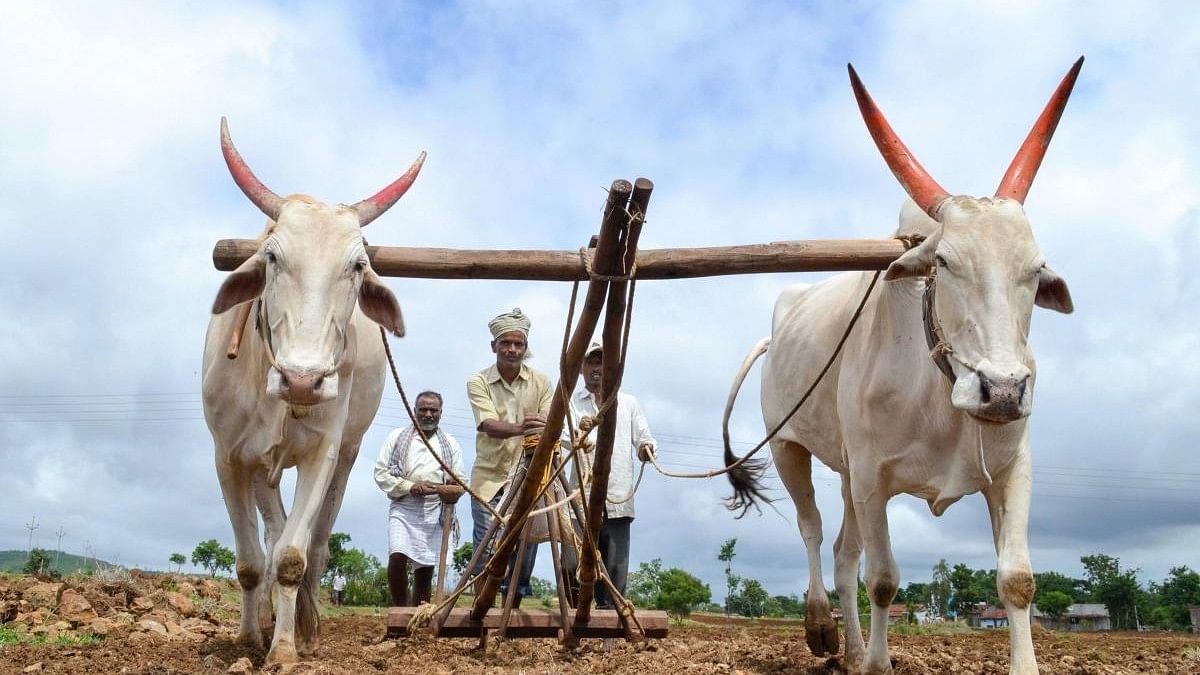
Representative image of a farmer.
Credit: PTI Photo
Karnataka is estimated to suffer more than 50 per cent crop loss this monsoon due to drought, which could lead to a hike in prices of certain food grains.
While the food production target for this monsoon is 1.11 crore tonnes, the state is likely to see crop damage up to 58 lakh tonnes, according to current estimates by the government.
Speaking to reporters, Agriculture Minister N Chaluvarayaswamy said according to the current estimates, the losses were pegged at 58 lakh tonnes, which is 52 per cent of the total food production target for the South West Monsoon.
The extent of crop damage is estimated to be 40 lakh hectares.
Paddy, ragi and jowar are the crops that are impacted the most, owing to which their prices are expected to go up, the minister said.
"Some farmers have sown paddy in the Cauvery basin even after the government explicitly told them about water shortage. The crops sown in these areas are most likely to fail," Chaluvarayaswamy said. He, however, added that Karnataka is overall unlikely to be impacted much. "Some impact will be seen at the national-level," he foresaw.
Karnataka has declared as drought-hit 195 taluks.
With the total estimated crop loss amounting to Rs 28000 crore, the government is seeking compensation of Rs 4,000 crore under the NDRF.
The minister hoped that the situation would improve in at least some taluks, reducing the overall crop loss.
Anna Bhagya tweak?
Meanwhile, some farmer representatives who met Chaluvarayaswamy on Wednesday urged the government to drop the idea of providing 10 kg rice under Anna Bhagya and instead divide it between 5 kg rice and another 5 kg of grains such as jowar or ragi, depending on the region. The government would consider this proposal, the minister said.
At present, beneficiaries are being credited money worth 5 kg rice as the government has been unable to procure the required rice.
Speaking to DH, farmers' leader Chamarasa Malipatil, who was among the delegation that met the minister, said they also proposed that the government gives one kg groundnut oil and one kg tur dal under the scheme. "All put together, it will still cost lesser than what the government is spending under the scheme now by crediting Rs 170 per person every month. This way, beneficiaries will get nutrition and the government can also help farmers by procuring their produce," he explained.
